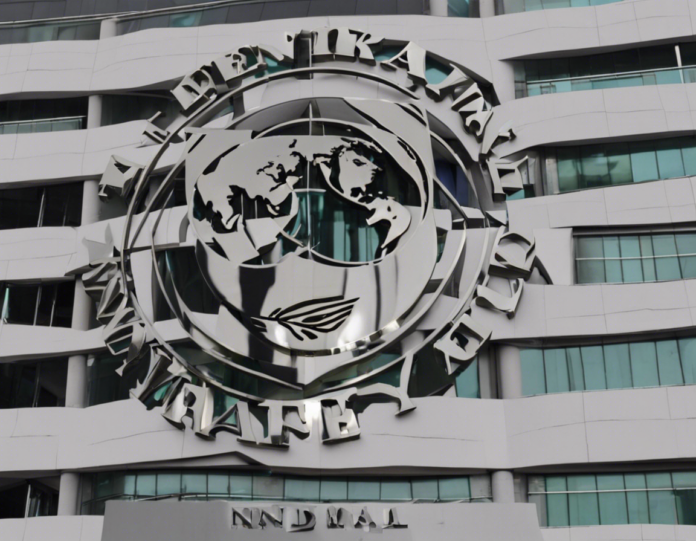The International Monetary Fund (IMF) has recently issued a warning to the Maldives, urging the country to take urgent measures to avoid falling into debt distress. The Maldives, known for its stunning natural beauty and tourism industry, has been facing economic challenges exacerbated by the global pandemic. The IMF’s cautionary statement serves as a wake-up call for the Maldivian government to address its mounting debts and fiscal imbalances before they spiral out of control.
In this article, we will delve into the factors contributing to the Maldives’ current economic predicament, the implications of debt distress, and the possible strategies that the Maldives can implement to navigate this challenging terrain.
Understanding the Maldives’ Economic Landscape
The Maldives, an archipelago nation in the Indian Ocean, heavily relies on tourism as its primary economic driver. The country’s picturesque beaches, clear waters, and luxury resorts attract millions of tourists every year, generating significant revenue. However, the global travel restrictions and economic downturn caused by the COVID-19 pandemic have dealt a severe blow to the Maldivian economy. With dwindling tourist arrivals and revenue, the government has been forced to seek external financing to sustain its operations and support essential services.
The Dangers of Debt Distress
Debt distress occurs when a country is unable to meet its debt obligations, jeopardizing its financial stability and sustainability. The accumulation of excessive debt, often fueled by borrowing to finance budget deficits or infrastructure projects, can lead to a vicious cycle of borrowing to repay existing debts, further exacerbating the country’s financial woes. If left unchecked, debt distress can result in a full-blown debt crisis, with severe repercussions for the country’s economy, including inflation, currency devaluation, and austerity measures.
For the Maldives, the specter of debt distress looms large as the country grapples with mounting debt levels and declining revenues. Without swift and decisive action, the Maldives risks sliding into a debt trap that could undermine its long-term economic prospects and fiscal sustainability.
Strategies to Mitigate Debt Distress
To avert the looming crisis, the Maldivian government must implement prudent fiscal and debt management policies. Here are some strategies that can help the Maldives navigate its way out of debt distress:
1. Revenue Diversification
Reducing reliance on tourism revenue by diversifying the economy can help cushion the impact of external shocks, such as pandemics or geopolitical events. Investing in sectors like agriculture, fisheries, and renewable energy can create new sources of income and reduce vulnerability to fluctuations in the tourism industry.
2. Strengthening Debt Management
Enhancing transparency and accountability in borrowing practices is crucial to avoid accumulating unsustainable levels of debt. Implementing debt sustainability analysis, improving debt reporting mechanisms, and adhering to responsible borrowing practices can help the Maldives manage its debt levels effectively.
3. Fiscal Reforms
Rationalizing government spending, increasing efficiency in public service delivery, and enhancing revenue collection mechanisms are essential steps to bolster fiscal resilience. Implementing reforms to improve tax compliance, reduce wasteful expenditures, and enhance governance can help address budget deficits and reduce the need for excessive borrowing.
4. Engaging with International Partners
Collaborating with international financial institutions, such as the IMF and World Bank, can provide the Maldives with technical assistance, policy advice, and financial support to address its economic challenges. Seeking debt restructuring or relief options from bilateral and multilateral creditors can also alleviate the country’s debt burden and create space for sustainable economic recovery.
5. Promoting Sustainable Development
Prioritizing investments in sustainable development projects that generate long-term socio-economic benefits can help stimulate economic growth and reduce dependency on external borrowing. Green initiatives, infrastructure projects, and social welfare programs can create employment opportunities, enhance resilience to external shocks, and foster inclusive growth.
By implementing a combination of these strategies and adopting a holistic approach to economic management, the Maldives can chart a path towards debt sustainability and economic resilience.
Frequently Asked Questions (FAQs)
1. What is debt distress?
Debt distress refers to a situation where a country is unable to meet its debt obligations, leading to financial instability and potential default on its loans.
2. How does debt distress impact a country’s economy?
Debt distress can have severe consequences for a country’s economy, including inflation, currency devaluation, austerity measures, and reduced investor confidence.
3. Why is the Maldives at risk of debt distress?
The Maldives is facing debt distress due to a combination of factors, including declining tourism revenues, budget deficits, and high levels of external borrowing.
4. What are some signs that a country is approaching debt distress?
Indicators of debt distress include rising debt-to-GDP ratios, declining foreign exchange reserves, increasing debt service payments, and reliance on short-term or high-cost borrowing.
5. How can the Maldives avoid debt distress?
The Maldives can mitigate debt distress by diversifying its revenue sources, strengthening debt management practices, implementing fiscal reforms, engaging with international partners, and promoting sustainable development initiatives.
In conclusion, the IMF’s warning to the Maldives underscores the urgent need for the country to address its economic vulnerabilities and safeguard its long-term financial stability. By adopting a proactive approach to debt management, implementing structural reforms, and fostering sustainable development, the Maldives can navigate the challenges of debt distress and position itself for a resilient and prosperous future.












